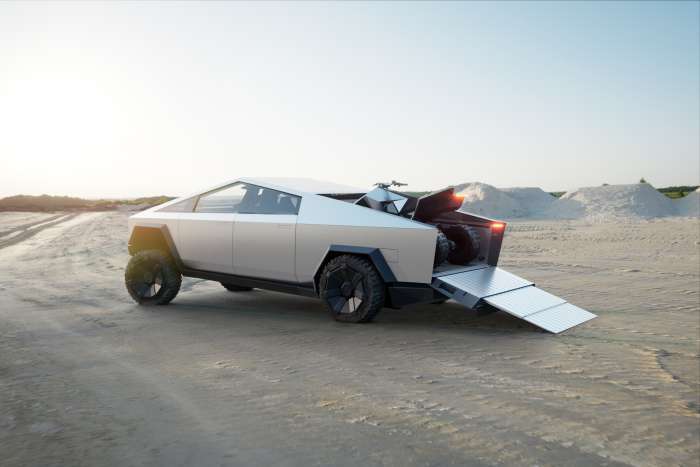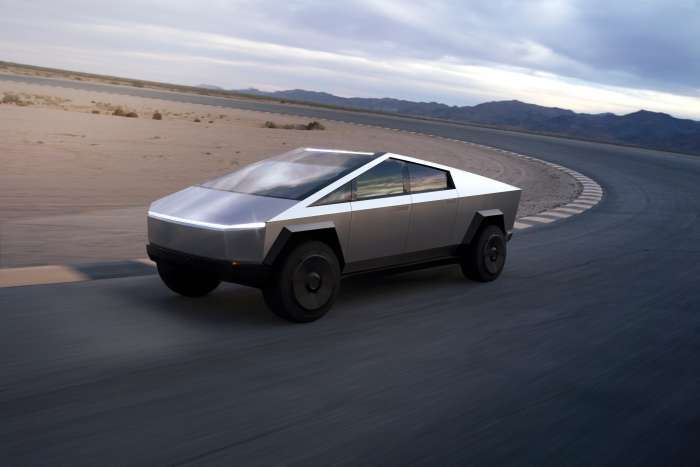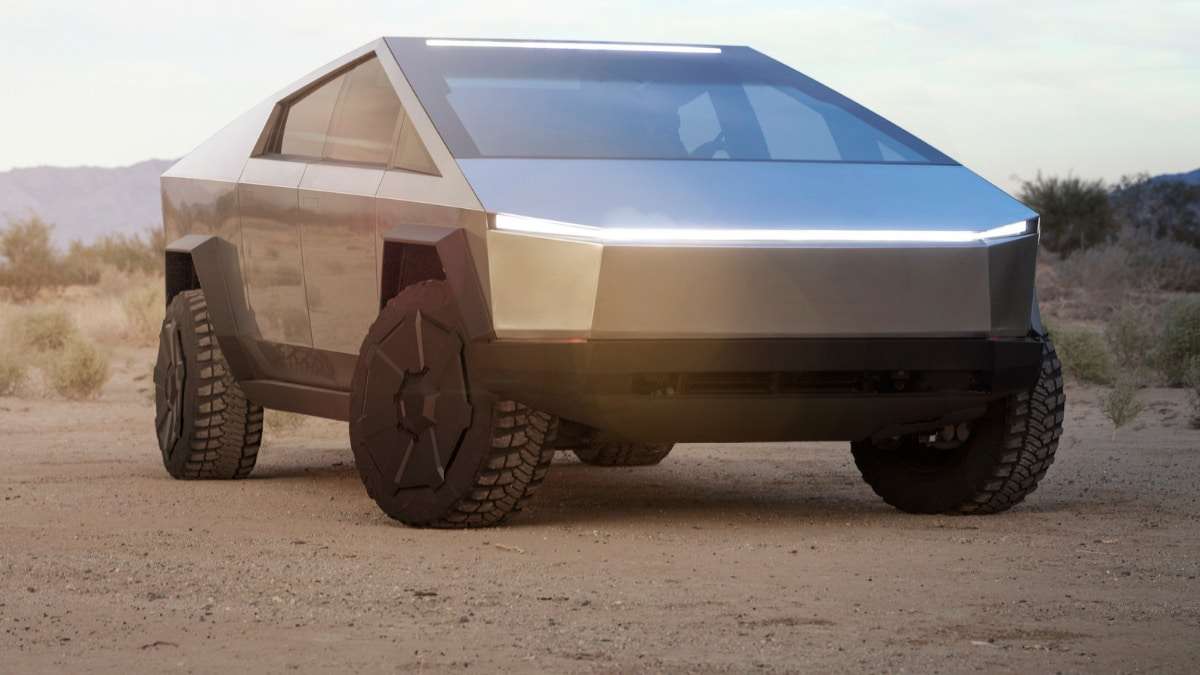The Tesla Cybertruck was first presented to the public in November 2019. For four years - as of now - it has generated great expectations thanks to a unique design that actually leaves no one indifferent, moving completely away from the conventional appearance of a pick-up. A strong stainless steel body, high performance - even in its simplest version - and a minimalist, but very high-tech interior with space for driver + five passengers, has in fact garnered thousands of reservations, but at the same time many delays in development.
Following its intense history, a key question arises: is it really a vehicle that will become as popular as the rest of Tesla's electric cars? Jim Farley, CEO of Ford, has taken advantage of an interview on CNBC to lash out at the Austin company and by the way boast of the Ford F-150 Lightning.

"If Tesla wants to design a Cybertruck for people in Silicon Valley, that's fine. It's like a cool premium product parked outside a hotel. But I (Ford) don't build a truck like that. We make them for real people doing a real job.” That's how blunt he was when asked about Tesla's next electric car.
The leader of Ford can afford the luxury of making these accusations because, in the electric pick-up segment, he has actually managed to get ahead of his greatest rival. The F-150 Lightning is now available for sale, and for now at least, rules over the scant competition: only Rivian with the R1T can give it some shade, given that both the Chevrolet Silverado EV and the Ram EV are also still in development phase. When it finally arrives, the Cybertruck - which could very well be the last to join the offering - won't have as free a ride as the Model 3 once did.
With these words, Farley distances himself a bit from Tesla, after both have appeared hand in hand in recent weeks on account of NACS, the new fast charging standard in the United States.
Ford CEO Responds to Tesla Cybertruck: “I Make Trucks for Real People Who Do Real Work” | $TSLA | During an interview with CNBC, Ford CEO Jim Farley addressed the upcoming launch of the Tesla Cybertruck, dismissing it as a high-end product targeted at Silicon Valley rather than… pic.twitter.com/jBgZcfNeYE— Deon (@HDEONEV) June 21, 2023
According to the latest statements by Elon Musk, CEO of Tesla, the Cybertruck will be launched on the market in September this year, with an initially limited production that will increase throughout 2024. In a few months we will know if the large reservations of the Tesla pick-up come true and, if so, if the manufacturer can assume the required production rates and compete face to face with the Ford F-150 and the rest of the competitors.
Tesla's success is not only causing a revolution in the pick-up segment in America, but also seems to be bringing them closer to Europe, where the style and radical change the Cybertruck represents with respect to other models in its segment has also caused a sensation.
It is essential to note that the ongoing race for domination in the electric pick-up market will significantly impact the automotive industry. The sustainability and innovative features of these vehicles will likely play a critical role in consumer choices and preferences. In the coming years, the competition between conventional vehicle manufacturers and companies like Tesla will provide a stage for a fascinating evolution of the market, both in terms of design and technology advancements.

As the Cybertruck starts hitting the roads, it will indeed face fierce opposition from the established automotive giants, as well as emerging players, who are determined to capture a share of the electric pick-up market. The significance of public opinion and perceptions should not be overlooked. The Cybertruck's unconventional design, added to the high expectations set by Tesla, will undoubtedly polarize potential buyers. However, Tesla's proven track record in technology innovation and delivering high-performance electric vehicles may sway decisions in their favor.
At the end of the day, it is safe to say that the rivalry between Ford, Tesla, and other electric pick-up manufacturers will ultimately result in more diverse offerings for consumers, faster expansion of charging infrastructure, and continuous advancements in energy efficiency and vehicle performance.
This competition will not only benefit the electric pick-up segment but also contribute to the broader adoption of electric vehicles in general, helping to reduce carbon emissions and reliance on fossil fuels. Time will tell how these developments will shape our transportation landscape, potentially setting it on a greener and more sustainable path for generations to come.
Source: ev-edition
Nico Caballero specializes in Data Analytics and solar energy. He also holds a Diploma in Electric Cars from Delft University of Technology in the Netherlands, and enjoys doing research about Tesla and EV batteries. He can be reached at @NicoTorqueNews on Twitter. Nico covers Tesla and electric vehicle latest happenings at Torque News.





